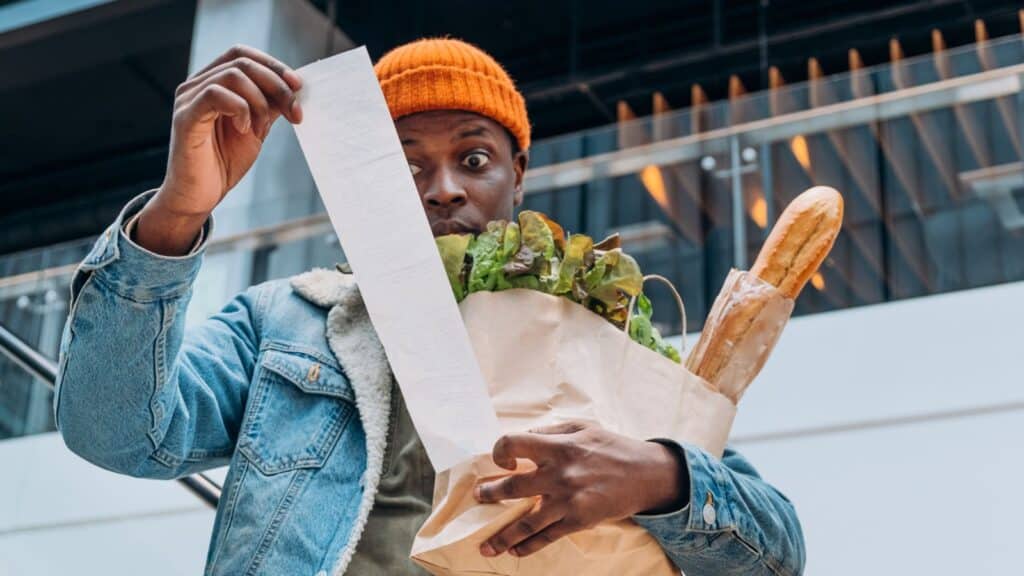Buying in bulk used to feel like the smart move. I figured it meant saving money and fewer trips to the store. But those big packs ended up costing more and created waste. Once I changed how I shopped, my grocery bill dropped, my pantry stayed neat, and less food went bad.
I Was Buying More Than We Needed

Bulk shopping made me feel prepared, but most of what I bought sat untouched for months. I ended up tossing expired snacks, stale cereal, and freezer-burned meat. When you shop for a household instead of a restaurant, bigger quantities do not always make sense. Now I buy what we can actually use in a week or two, and nothing goes to waste.
💸 Take Back Control of Your Finances in 2025 💸
Get Instant Access to our free mini course
5 DAYS TO A BETTER BUDGET
The “Deal” Wasn’t Always a Deal

I used to assume larger packages meant lower prices, but that isn’t always true. Once I started checking unit prices, I noticed that single items on sale often beat the bulk price. Stores know how to make big packaging feel like a bargain. Paying attention to the price per ounce helped me avoid falling for those tricks.
It Encouraged Impulse Buying

Those warehouse aisles are designed to tempt you. I went in for paper towels and left with snacks, vitamins, and kitchen gadgets I didn’t need. Having extra storage space made it too easy to justify unnecessary purchases. Now I stick to smaller grocery stores or shop online with a list, which keeps my budget in check.
It Created More Food Waste

Bulk buying gave me good intentions but bad habits. We couldn’t finish large portions before they spoiled, especially with fresh produce and dairy. I’ve since learned that buying smaller quantities keeps food fresher and encourages us to eat what we already have. Less waste means more money saved.
Storage Was Becoming a Problem

Stocking up required extra shelves, bins, and space I didn’t really have. My pantry felt cluttered, and I often forgot what was hidden in the back. Buying less has made my kitchen easier to manage and keeps everything visible. Organization feels better than an overfilled closet of forgotten items.
My Budget Became More Predictable

Bulk shopping meant bigger, inconsistent receipts. One trip could cost $300, and the next week, only $40. By buying what I need weekly, my spending stays consistent and easier to track. I can stick to my budget and see exactly where the money goes each month.
Smaller Stores Offer Better Control

Shopping in smaller stores or using grocery pickup has made it easier to stay focused. I’m not tempted by huge displays or “buy more, save more” promotions. I grab what’s on my list and move on. My trips are faster, my cart is lighter, and my total is lower every time.
It Feels Less Wasteful and More Intentional

Buying less has made me more thoughtful about what comes into my home. I plan meals, shop with purpose, and keep only what we’ll actually use. There’s something satisfying about finishing every item before it expires. My wallet is happier, my kitchen feels calmer, and grocery shopping finally feels manageable.
Smarter Spending

Bulk shopping isn’t always bad, but it doesn’t work for everyone. For smaller households or families trying to cut back on waste, buying less can actually save more. Being mindful about what you bring home keeps your money where it belongs—in your pocket, not in overstuffed shelves.
15 Weird Things Frugal People Refuse to Spend Money On

Frugal living is about stretching every dollar to its limit and prioritizing needs over wants. This lifestyle leads to avoiding unnecessary purchases, even ones others might consider normal. Here are some of the quirkiest things frugal folks refuse to spend money on. 15 Weird Things Frugal People Refuse to Spend Money On



